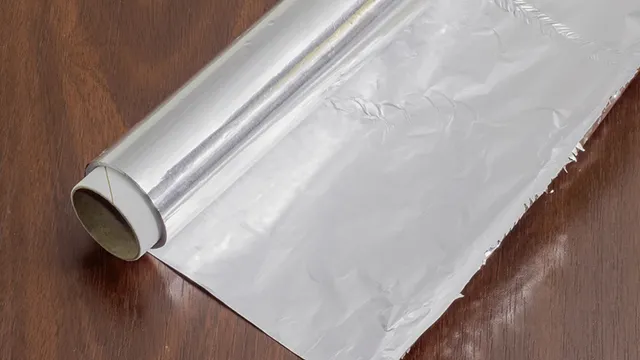
- Share on Facebook2614
- Share on Pinterest
- Share on Twitter
We all want our food to be safe and free of toxins. The first step? Cooking at home with whole, organic ingredients and avoiding processed foods. However, even if you cook with great ingredients, you could still be putting yourself at risk depending on the materials you use for preparing your meals — for instance, baking or broiling your food by wrapping it in aluminum foil.
We’re so used to using aluminum foil that many of us view it as entirely innocuous — surely there are bigger threats to our health than the big, bad roll of foil? Well, studies show that it may not be as harmless as we think. High levels of aluminum in the body have been linked to numerous health issues and a reduced rate of brain cell growth.
A 2001 study published in the journal Science of the Total Environment tested the effects of aluminum on human brain cells. On their results, the study authors note: “No significant change in cell growth was found during a three-week exposure period to aluminum at concentrations from 0.1 to 10 mg/l. However, after 3 weeks Al [aluminum] started to reduce the growth rate relative to the control, and the decrease became more pronounced as the exposure period to aluminum increased.”
Other issues with buildup of aluminum in the body, or aluminum poisoning, include muscle pain, stomach pain and ulcers, appetite loss, dry mouth and convulsions, to name a few. Some research has also found high levels of aluminum in the brains of individuals diagnosed with Alzheimer’s disease.
Aluminum can be detoxified from the body with enough magnesium if the problem is addressed in time, but you probably want to reduce your exposure as much as possible to avoid potentially serious complications should it get too concentrated in your body.
One way that a significant amount of aluminum could enter your body is through its use in cooking food. The authors of a study published in the International Journal of Electrochemical Science state: “In the present work, leaching of aluminum from aluminum foil in different food solutions was studied. Minced meat was used to prepare six different food solutions using tomato juice, citric acid, apple vinegar, salt, and spices. … The results clearly indicate that the use of aluminum foil for cooking contributes significantly to the daily intake of aluminum through the cooked foods. The amount of leaching was found to be high in acidic solutions, and even higher with the addition of spices.”
The study’s researchers explain that while the human body can “excrete small amounts [of aluminum] very efficiently,” a person should not take in more than 40 milligrams per kilogram of bodyweight each day. This is the limit that has been set by the World Health Organization (WHO).
The study found that cooking foods in aluminum foil leached levels of aluminum that were “unacceptable” by the standards of the WHO.
Based on their study, the authors conclude: “Excessive consumption of aluminum from leaching aluminum foil has an extreme health risk effects. Aluminum foil may be used for packing but not for cooking.”
Ghada Bassioni, who is the lead author in the aforementioned study, explains that cooking in pots and pans made from aluminum could still be all right if you boil them several times “until the base becomes matt[e]” and avoid scrubbing them. However, the study authors recommend porcelain or glass for baking as safer alternatives.
As far as the foil, Bassioni says that wrapping cold food in it is safe, but not for long periods of time. The time period before it starts leaching into the food would be even shorter for acidic or heavily spiced foods.
It may be a lot safer to avoid aluminum in your kitchen entirely, especially for cooking, and to store food in reusable glass mason jars. It’s an easy change to make, and aluminum exposure just isn’t worth the risk.
—Tanya Rakhmilevich
Sources:
http://theconversation.com/why-you-shouldnt-wrap-your-food-in-aluminium-foil-before-cooking-it-57220
http://www.electrochemsci.org/papers/vol7/7054498.pdf
http://www.ncbi.nlm.nih.gov/pmc/articles/PMC3056430
http://www.sciencedirect.com/science/article/pii/S0048969700008925
- Share on Facebook2614
- Share on Pinterest
- Share on Twitter

